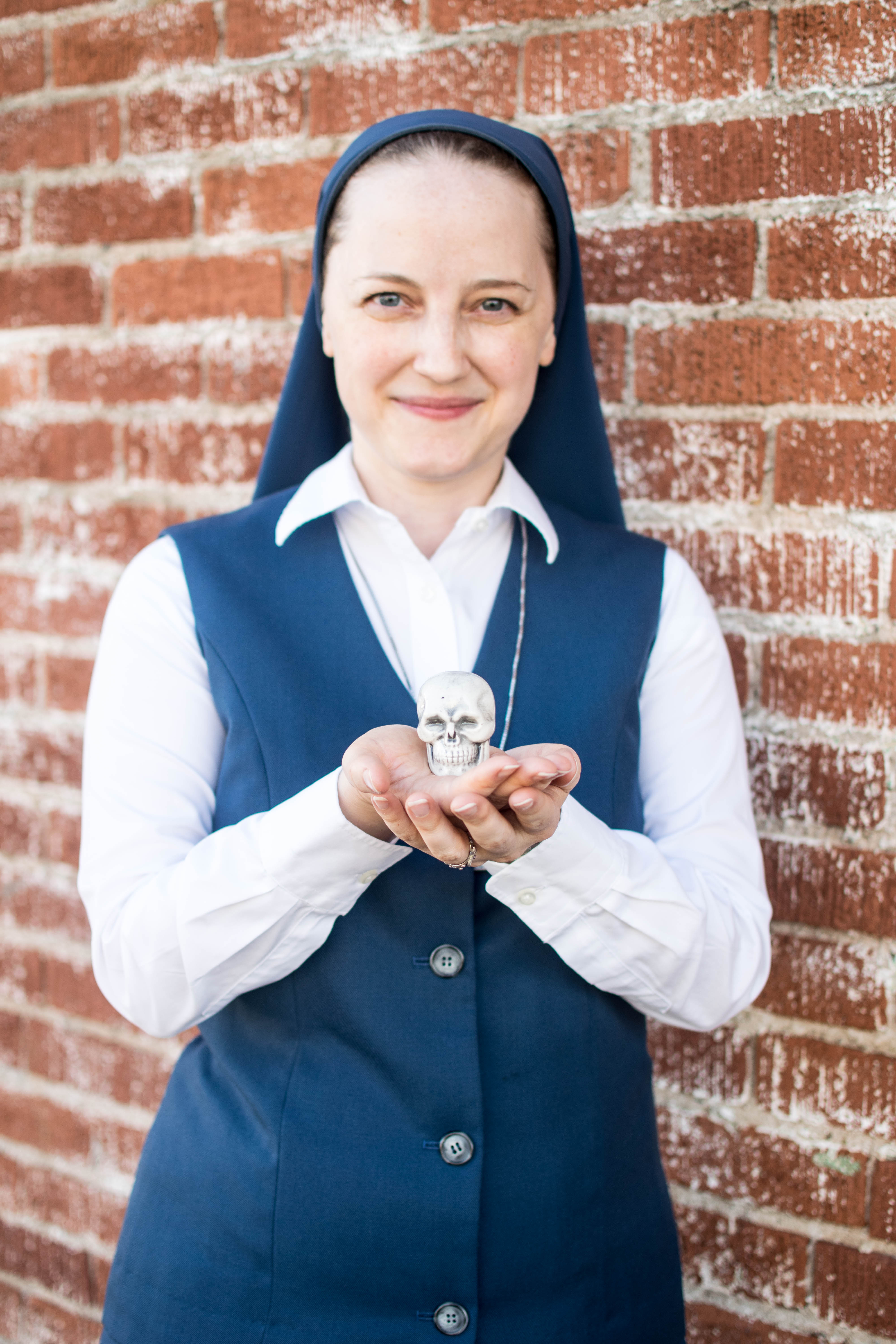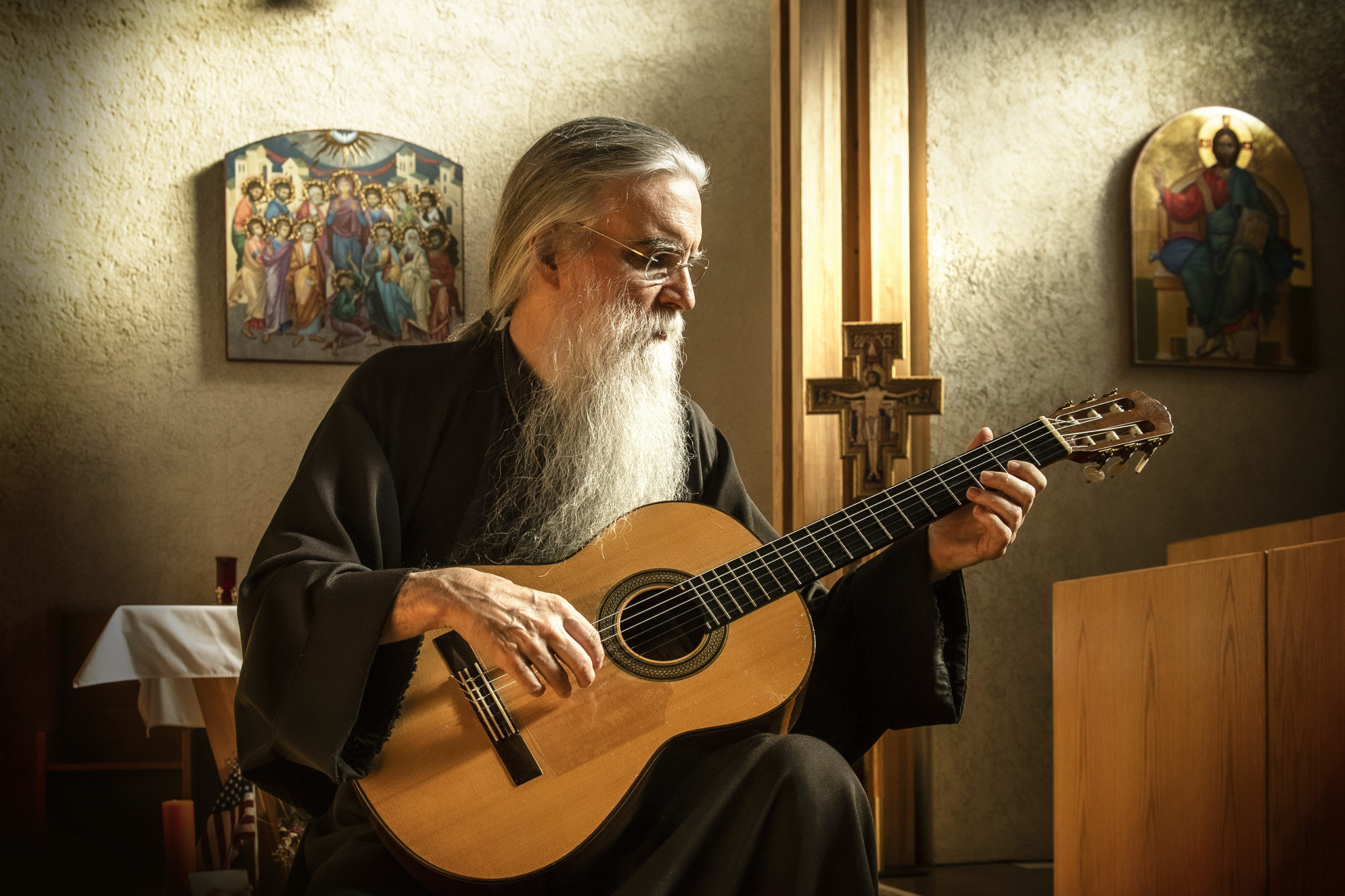This is the first in a new series of interviews with the Daughters of St. Paul, a religious order devoted to media evangelism and sanctifying the media. They share the gift of Jesus Christ through print, film, music, and digital and are known to many Catholics as the #medianuns. Our mission at Verbum is to “use technology to equip the Church to grow in the light of the Bible,” so the Pauline Charism is close to our hearts.
Sister, you came back to the Church after becoming an atheist as a teenager. What led you back to the Church and to your vocation with the Daughters of Saint Paul?
I first doubted whether God really existed at the age of five. My natural skepticism, coupled with the problem of suffering, led me to turn to atheism at the age of fourteen. I was a materialist atheist for over a decade. Eventually, I began to realize that my worldview had unsatisfying answers to some of life’s most important questions. So, I began to explore different religions and worldviews. I still didn’t believe in God, but I was investigating, searching for truth. Then, in one Damascus-like moment in Costa Rica, I had what Jacques Maritain would call “a metaphysical experience” in which God made clear to me that he existed, that he was a person, that he loved me, and that he had a plan for my life. I would have never imagined it as an atheist, but my experience of God in that moment eventually led me back to the Church and later into the convent.

You’ve written two books on the theme of Memento Mori. Can you tell us how these projects came about?
I was inspired by the founder of my religious order, Blessed James Alberione— who kept a skull on his desk to remember his inevitable death—to begin meditating every day on my death. Over two years ago, I also got a skull for my desk and started to meditate on death every day. I shared my journey on Twitter, and before I knew it, thousands of other people were getting excited about memento mori and meditating on their death. People were buying skulls for their desks and reading my tweets, but I wanted to help people really integrate this practice into their lives. So that’s where the idea for my memento mori projects came from. I worked with my sisters at the Daughters of Saint Paul to create a memento mori journal, a Lenten devotional, and an upcoming prayer book, Memento Mori: Prayers on the Last Things. It’s been exciting to see peoples’ responses to these projects because I know that the Holy Spirit is using them to help people to grow in the spiritual life. The practice of remembering death and living for heaven is so vitally important in the Christian life.
Why ought we meditate about death?
Death is inevitable. We are closer to death every moment of our lives. We can ignore this fact. Or we can face it. But we can only live authentically when we face it. Saint John Vianney wrote in a sermon once, “If we were required to die twice, we could jettison one death. But man dies once only, and upon his death depends his eternity. . . . If we desire to die a good death, we must lead a Christian life. And the way for us to prepare for a good death is to model our deaths upon the death of Jesus Christ.” In order to model our death on the death of Jesus Christ, we must live in preparation for it. Jesus knew that he would die. He spent his life preparing himself and his disciples for the moment of ultimate sacrifice on the cross. Jesus was not surprised by the cross. He was not sentenced by Pilate and then shocked that he was going to die young and in such terrible circumstances. Rather, he knew that he was going to die for us and he began dying for us the very moment he was born. We are called to the same dynamic. It sounds depressing, but it’s the secret paradox of the Christian life. In dying we find life.
What Bible verse speaks to you right now?
I love the verse in the book of Sirach that urges, “In all you do, remember the end of your life, / and then you will never sin” (7:36). As Christians, we are urged to remember the last things—death, judgment, hell, and heaven— “in all we do,” not just occasionally. I’ve found this practice to be hope-filled and energizing, and it’s why I try to share it with others. When we live for God, everything changes.
Do you have any prayer requests for our readers?
The Daughters of Saint Paul are called to evangelize using all forms of modern media, (books, radio, TV, film, digital media, etc). Our founder, Blessed James Alberione, also encouraged us to make sacrifices and to live in reparation for the many evils that happen through media. So, I would invite readers to join us in praying for everyone who uses media. We pray especially for people who sin using media and for people who lead others to sin.

Want to learn more about Pauline spirituality? Pray and study Scripture with the Daughters of St. Paul’s Daily Gospel Readings.



This so reminds me of St Benedict’s exhortation to “keep death daily in mind”. Sr Theresa really fleshes out what this should mean. We are made for heaven and our lives here should reflect that reality. We need to live life to the full here so that we shall be able to live life to the full in eternity. Note to self: Purchase a skull and start meditating on death! 🙂
Thank you. Great interview.
[…] Sister Theresa Aletheia Noble, the nun behind the ever-growing memento mori phenomenon, interviewed for the Verbum blog: […]